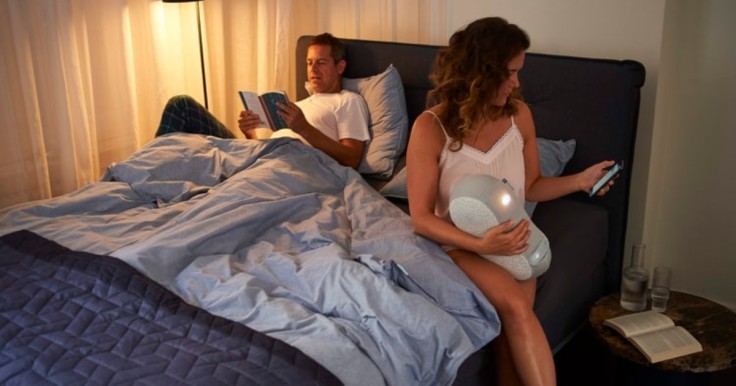
Can your spouse or partner be too close for comfort at bedtime? While the term sleep divorce is relatively new, the practice had begun even before it was coined. At least 12% of couples in America have filed for sleep divorce, and 30% discussed sleep divorce, Good Housekeeping noted. Further, as much as 40% of couples sleep on different beds. Ultimately, the reason is to get their uninterrupted sleep back.
Why Couples Sleep Together?
Co-sleeping, communal sleeping, or simply sleeping together were mainly for warmth and safety in the past. But resting in the presence of a person you trust can also deepen closeness. Think Uninterrupted skin-to-skin time with your partner, which helps couples feel connected.
Also, there is the notion that not sleeping together in the same bed can cause intimacy to suffer. So it is, when couples have arguments, they may end up not sleeping together. Plus, in today's busy times, sleeping together seems essential to make up for each other for lost time throughout the day.
Sleep Troubles Caused by Sleeping Together
Then again, the cons of sleeping together may outweigh the benefits. Some of the reasons why partners may not want to sleep together include snoring or having sleep apnea. One's significant other may be a restless sleeper, have poor before-bed hygiene, and hog the bed or blanket. Not to mention, women bear more of the cons of poor sleep habits caused by sharing a bed with a man. Meanwhile, the quality of men's sleep is not affected in the same way as his female partner, Yahoo News reported.
Health Experts on Sleep Divorce
Dr. Sujay Kansagara, director of Duke's Pediatric Neurology Sleep Medicine Program, works with couples who opt to sleep divorce. Dr. Kansagara noted that the decision to have a sleep divorce should be mutual to improve their sleep quality.
The sleep pro also shared a few tips on how to get a sleep divorce which may not necessarily deem sleeping in different rooms. Other less drastic ways couples can improve sleep include:
- Sleeping on the same bed but using different blankets
- Sleeping in the same room but on separate beds to prevent transferring motion to the other.
Psychotherapist and NYC relationship specialist Lisa Brateman noted that if a couple decides to sleep separately so they can ensure a good night's rest, "sleep divorce becomes a positive choice for the couple."
Benefits of a Sleep Divorce
Consider your or your partner's energy after sleep. Do they suffer from low mood, tiredness, and irritability? The poor quality of sleep can cause these. It is wise to consider sleeping apart to improve mood, concentration at work and ultimately even enhance the relationship's quality. Sleep issues can stir problems in the relationship; nighttime disturbances cause conflicts the next day.
Restorative sleep is good for everyone overall. Natalie D. Dautovich, Ph.D. of the National Sleep Foundation, noted that healthy sleep is vital for the body to heal and repair itself. Good sleep at night also boasts a healthy immune response as well as healthy cognitive functioning. Dautovich noted that when sleep is interrupted at night multiple times, the rest will be less vital.
How to Talk to Your Partner about Sleep Divorce
Rather than using the term sleep divorce, one may opt to strive for a better "sleep arrangement." Focus on wanting to find an environment that will help both of you sleep well. When talking to your partner about not sleeping together, it is wise to listen to them express feelings of hurt or rejection. Remember, sleep divorce is not a one-and-done kind of discussion. It may take trial and error to get to the best sleeping arrangement that will benefit you both.
Self also advised working on some sleep compromises like only sleeping apart on weeknights. This way, both partners ensure the best restorative sleep to boost their productivity at work. Then, they can come together on the weekends and sleep together.
Also, cuddling before rest can ease feelings of being hurt, rejected, or insecure. Finding other ways to e intimate before bed, like a nighttime ritual for the couple, can reduce the couple's transition into sleeping apart.